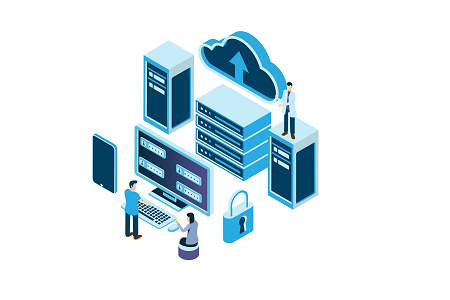Salient IT Services › Data backup storage in Yuba City
What you need to know about data backup storage in Yuba City
For modern businesses, data is usually one of their key assets. In fact, for some businesses, it may be their only real asset. It’s therefore vital to have a robust system for protecting your data. Choosing the right data backup storage is a key part of this. With that in mind, here is a quick guide to what you need to know about data backup storage in Yuba City.
If you’re in a public cloud
If you’re already working in a public cloud, then there’s a good chance that your public cloud provider will take a local data backup for you. It is, however, strongly advisable to take a second data backup to another public cloud. This will not only give you protection against misuse of your accesses (accidental or deliberate) but will also lay the foundation for a Plan B if you have any issues with your current public cloud provider (or just become dissatisfied with their service and want to move).
If you’re in a private cloud
If you’re in a private cloud, you’ll need to organize both your data backups yourself. Your local data backup will be held in your local cloud. Your off-site data backup is generally best stored in a public cloud. In short, this approach gives you the benefits of staying in an online environment, without the expense of running a second private cloud on a full-time basis.
For business continuity/disaster recovery you can choose between linking your data backup storage location with a second private cloud, so you can export and import data when needed. Then you just activate the second private cloud whenever it is needed (making it much more affordable). Alternatively, you could consider just using your chosen public cloud as a business continuity/disaster recovery solution. This is becoming increasingly feasible even in regulated industries.

Understanding storage in the public cloud
The key point to understand about the public cloud is that you pay for exactly what you use for exactly as long as you use it. In the context of data backup storage, “exactly” means not just the volume of storage you use (although this is obviously important), but also the speed of storage you use.
This has two implications. Firstly, you want to minimize the data you hold, as far as you reasonably can. There are several ways to achieve this but the one with the most impact is usually to ensure that all dormant data is moved swiftly out of your production systems so it is never included in your data backups. If you’re not confident about deleting it, then move it into a data archive.
Secondly, you want to segment your data into categories that reflect your business priorities and assign each category a Recovery Time Objective based on how quickly the data is needed. The data with the shortest RTOs needs to go into the fastest storage and vice versa.
If you’re in a data center
If you’re in a data center, you have two decisions to make. First of all, you need to decide what storage medium you’re going to use for your local data backups. Secondly, you need to decide if you’re going to take your off-site data backups to physical medium or if you’re going to use the cloud.
For your local data backups, at present, your choice is really between tapes and hard drives. If you have a higher budget, then SSDs may be an option, but it’s probably going to be some time before many SMBs could look at them as their main data backup storage solution.
SSDs could, however, be a useful investment for any company which has already invested in the hardware for tape backups. By partnering SSDs with tapes, companies can get the benefit of the SSDs’ speed (to buffer the data) and indexing capabilities (to clean and compress it). This can significantly boost the performance of tapes and comes at a much lower cost than using SSDs on their own.
If you know that you’re committed to taking off-site data backups to physical storage then you might want to consider investing in the hardware necessary to use tape data backups. This is because tapes are significantly more robust than hard drives. They are, however, also a lot slower and cannot be searched easily.
Hard drives have gained popularity because they are affordable and straightforward to implement, are much faster than tapes, and can be searched easily. The main problem with them is that they are very delicate. This is not necessarily a huge issue if you’re keeping them in a data center but may become one if you want to transport them to and from off-site storage.
If you’d like to speak to a reputable and experienced data backup storage partner in Yuba City, please click here now to contact Salient IT



